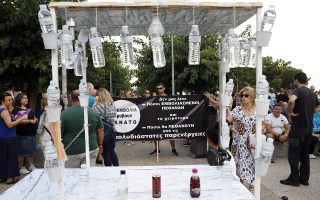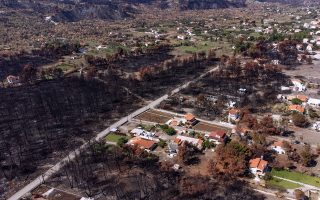‘Patriots’ and ‘ethno-nihilists’

One of the givens of our public life is the way self-proclaimed patriots attack those they consider lacking in historical knowledge and who are, consequently, “ethno-nihilists,” lacking a suitable patriotic conscience. The selective, “activist” reading of history is used as a benchmark of patriotism. Often the accusers know less than the accused but this does not faze them – they consider the spillover of emotions (their “soul”) as not only a worthy substitute for knowledge but also as proof of their own superiority. Because what use is a cool evaluation of events, personalities and forces (in the past and today) if it does not serve the nation’s just cause? And so, questions of foreign policy and defense are raised to the level of “national issues,” grist to the political mill, provoking disputes, complicating problems, undermining possibilities.
When we are faced by a constantly threatening Turkey, willful blindness is not wise. Strategic planning and the cultivation of public expectations ought to combine daring with knowledge and restraint, seeking the greatest possible domestic consensus and the broadest possible web of alliances. The basis for strategy and its execution is knowing our own strength and that of the enemy, as well as the interests of other powers. History teaches us continually. However, it can be dangerous when we do not seek to understand more than what we already know. The useful reading of history stems from knowledge that has been gained after great effort and by the continuous questioning of “facts.” The effort to impose on ourselves or others that which we want to believe obstructs our learning, clouds our judgment, hinders our next steps.
In this way, we see enemies everywhere, we conjure up defeats where there are none. Two recent examples: Stathis Kalyvas’ fine series “Disasters and Triumphs” on Skai TV shows how complicated Greek history is – as well as the reactions that an objective reading of it provokes; the recent revelation that the United States is not supportive of the construction of the EastMed pipeline (linking Israeli and Cypriot gas fields with Greece) would not have come as a surprise if we had understood from the start that the undersea pipeline was primarily a political project rather than economically viable or desirable during the push for renewable energy.
When Turkey pushes on regardless with its mistaken policies (F-35s, the economy etc), it is a sad waste of resources for us to stumble over every obstacle, to magnify differences between us and with allies, to overlook dangers and miss opportunities.





